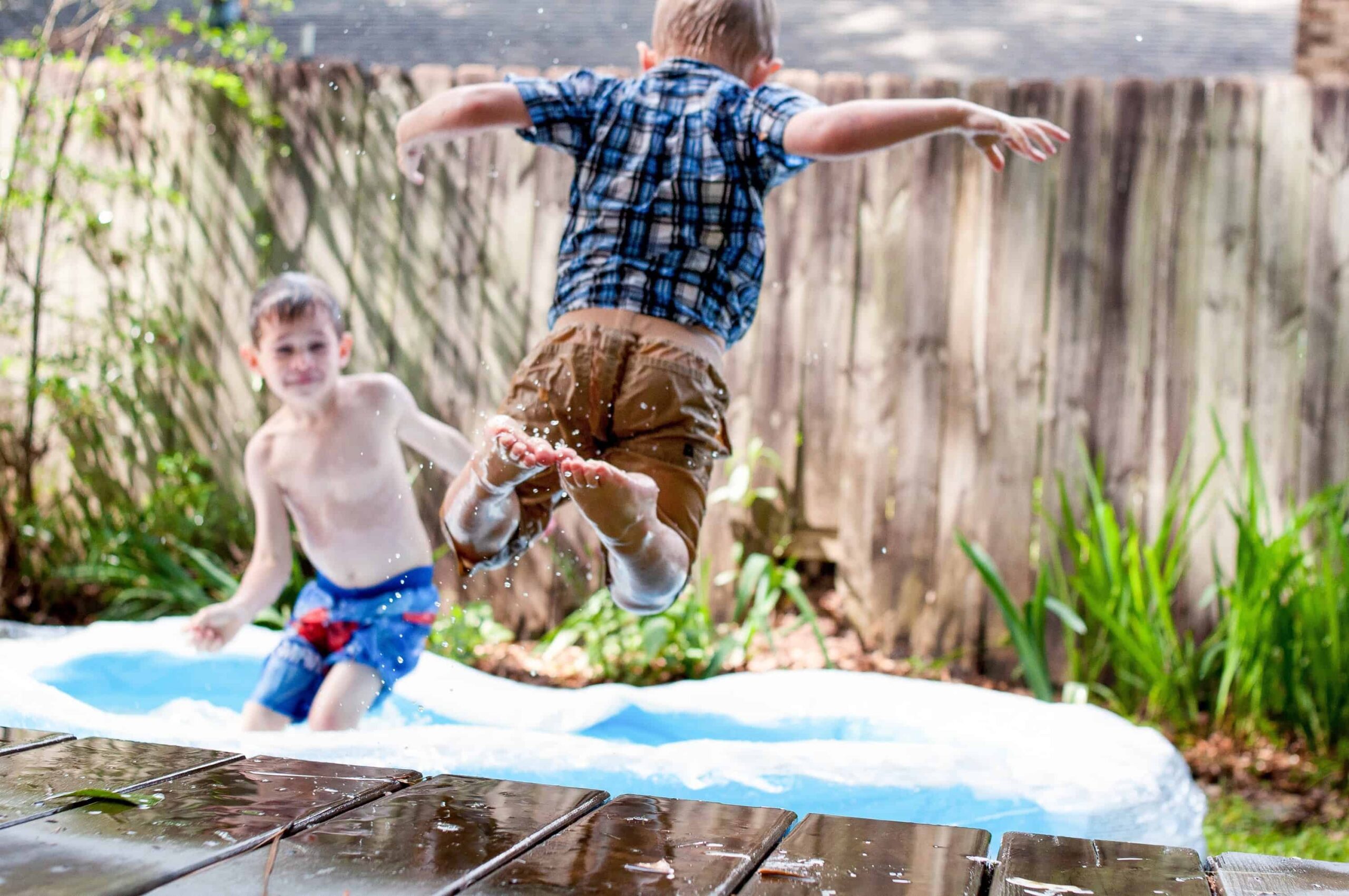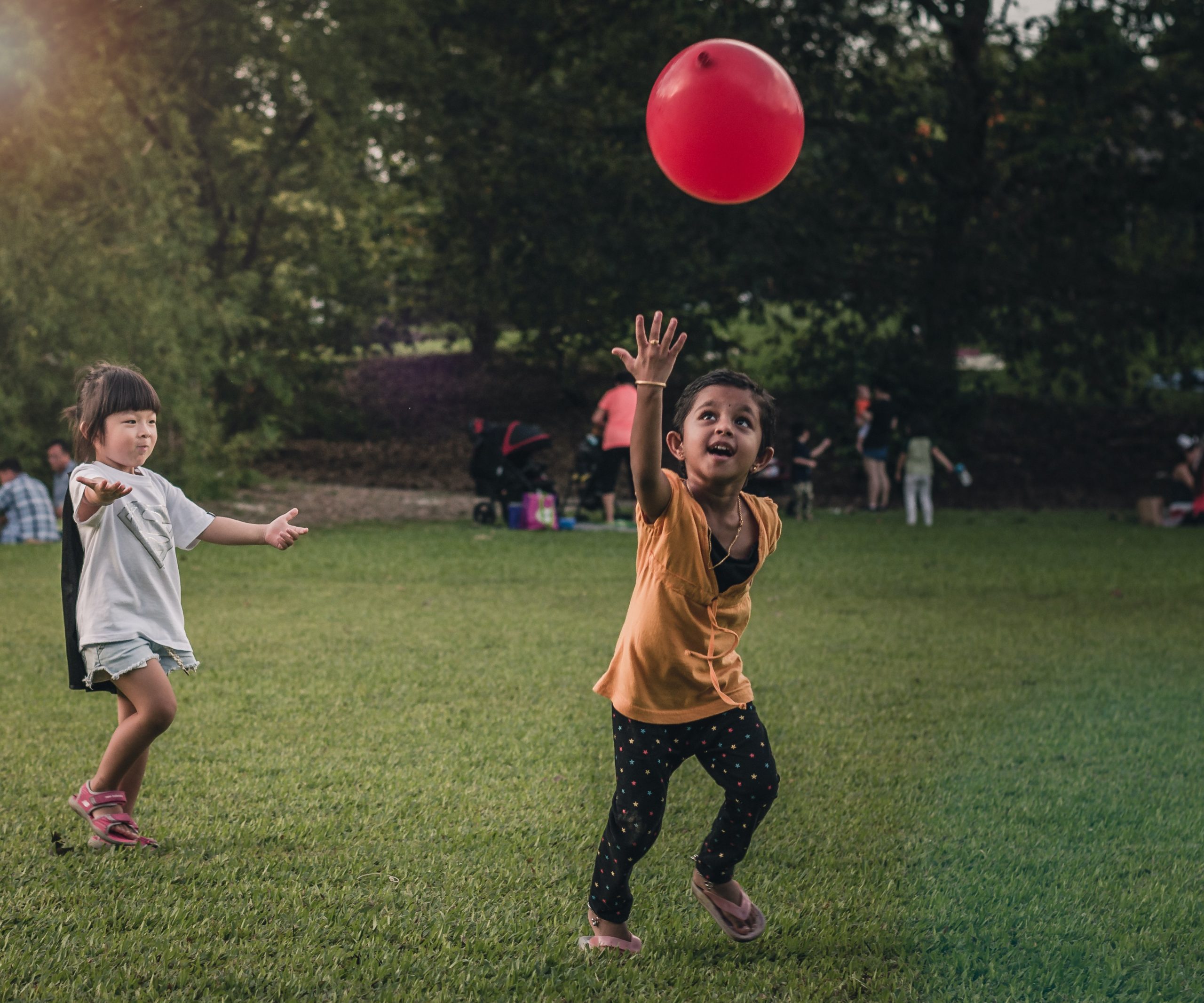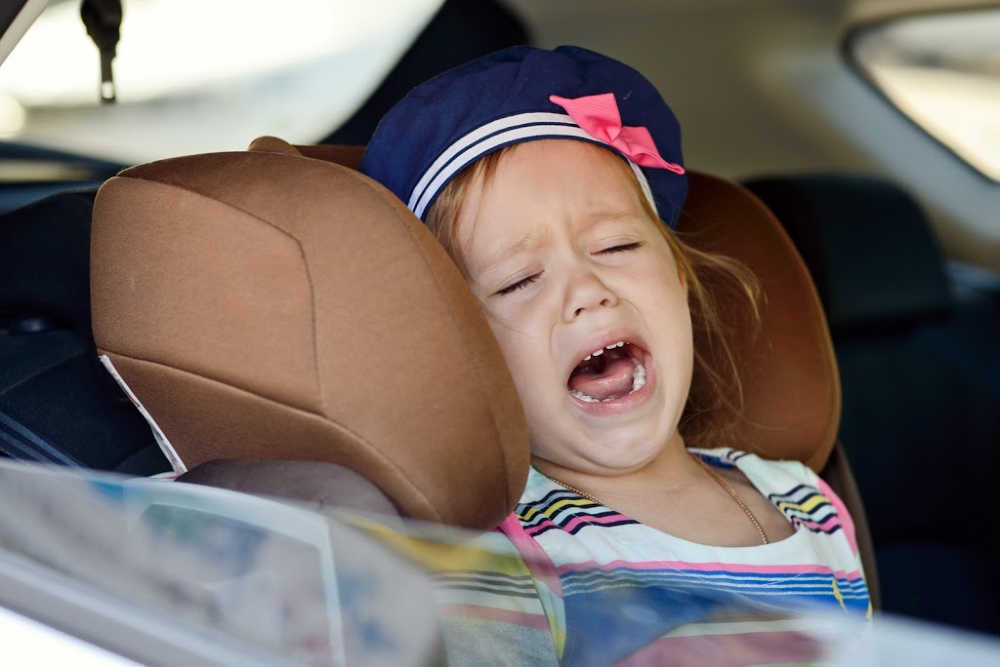Parenting a spirited child is a very involved, dynamic, & rewarding process. Find positive parenting strategies to parent your spirited child here.
There are times when I wonder if my two children are trying to reenact a scene from Lord of the Flies.
Really.
In our household, something as simple as changing them into their pyjamas can warrant a blood-curdling scream. In all honesty, trying to force them to do anything is completely futile.
Don’t get me wrong, my three-year-old son and four-year-old daughter are beautiful souls. They are wonderful, heartfelt, affectionate children. But let’s be honest, my two little ones are anything but placid. They are strong-willed, outspoken, and challenging.
Related reading: This is the key to parenting a strong-willed child
Are these kids just difficult or is there more to it?
While all toddlers exhibit a desire for autonomy, spirited children tend to be incredibly forthright, have particularly strong feelings and can seem like they are on an emotional rollercoaster. In fact, their parents often feel like they’re along for the ride too.
How do you know you have a spirited child?
According to WebMD, one in ten children can be classified as ‘spirited’.
- These incredible children don’t accept instruction at face value.
- They fight fiercely to be in charge of themselves and want to be right.
- Despite their determined nature, they are sensitive and feel a plethora of big emotions.
Though they keep any parent on their toes, spirited children undoubtedly will make for some of the most successful adults. Because they are unwilling to conform for the sake of obedience, they are critical thinkers and have profound empathy, spirited children have the capacity to be incredible leaders.
But how do you get from point A (the willfulness and big feelings) to successfully raised adults with your sanity intact?
How can we parent these lively children while preserving their spirit?
Based on my experience and research on child development, here are the best strategies I’ve found for parenting a spirited child.
Best Strategies For Raising Your Spirited Child
Establish a routine and stick to it.
This doesn’t mean having a regimented schedule, as that does not always work well either. So much of the joy of having children is living in the moment. That said, having a predictable rhythm to your day makes transitions much easier for young children. As one resource on early childhood states, “Providing consistent rituals for transitions can often provide children with enough security to know what to expect at certain times.”
Parent proactively by setting expectations and giving warnings.
Outline the day before it starts.
Then, when transitioning (i.e. driving from the car to school, for example), discuss what is to come. Knowing my children can doddle getting into school, I will outline getting out of the car and to the school door quickly. Before going to a restaurant, we explain to our children what will happen and what is expected of them. Dessert comes at the end for good behaviour.

Use discipline that makes sense.
Two invaluable assets a parent has when parenting a spirited child are their trust and understanding of one another. Because the feelings of spirited children are so big and so dynamic, consequences and discipline MUST preserve the integrity of the parent-child relationship. Natural consequences are consequences that result directly from bad decisions.
For instance, the first time my child refuses to put on a jacket in freezing weather means he steps outside and feels incredibly cold (don’t worry, I have the jacket on hand for when he concedes). That way, the battle is avoided, and it doesn’t become a habit for him to fight against putting on the jacket to go outside the next time.
Logical consequences are ones that are chosen by the parent based on their child’s poor choices. In the jacket example, my child would not be allowed outside until she put her jacket on. Both make more sense than arbitrary punishments.

Find a solution to the power struggle or behaviour together.
Part of what makes spirited children so special is their strength of personality. In order to reinforce this personality trait and diffuse power struggles, work together to find a way to rectify their problem.
Avoid punishment.
While yelling, spanking, timeouts and other methods of punishment may make sense at the time, or may give you release, they aren’t effective strategies for teaching children how to manage their emotions or internalize values.
Punishment often has little or no effect on the misbehavior, and takes the responsibility for the misbehavior away from the child. Children need to be accountable for their own behavior in order to learn the inner control necessary to function as healthy, self-disciplined individuals. A child who is punished with spankings, shouts, and threats may learn how to avoid these punishments simply by not misbehaving in that particular way within sight of the person who punishes. There is no guarantee, however, that the child’s behavior will be changed over time or when she is away from the person who punishes her. – Center for Early Education and Development, Univeristy of Minnesota
When your child is having difficulty with self-regulation, hold them close and empathize.
At such a young age, it is difficult for children to navigate their feelings. Sending them to their room is a great choice if you join them. Isolating your child to encourage them to calm down can actually lead to more upset and more insecurity. Empathy is an indispensable tool. It both acknowledges the child’s feelings and provides them with the words to label their upset.
Be attentive to their emotional needs.
As previously stated, parents of spirited children can feel as though they are passengers on their child’s emotional roller coaster. Certainly, it may seem more logical to dismiss their feelings. We don’t want them more upset. However, it is much more beneficial to acknowledge their feelings, as learning to identify one’s emotions is a crucial component of child development. Once they can identify how they’re feeling, we can provide them with tools to move through the issue at hand.
“…multiple studies [have shown] that parents who respond to their children’s emotions in a comforting manner have children who are more socially well-adjusted than do parents who either tell their kids they are overreacting or who punish their children for getting upset. In general, being supportive—which can include comforting the child, helping them to deal with their emotions, or helping them take care of the problem—tends to be related to better regulation in children,” – Nancy Eisenberg, Arizona State University
Scaffold their self-regulation and compliance.
Children work well on certain tasks when their parents or an advanced peer is working with them. For example, being close to my daughter allows her to get over her frustration faster. Or, when my son tells me he can’t clean up, I sit beside him. He cleans up well when I help him.
Without a doubt, parenting a spirited child is an involved, formidable endeavour. With the right strategies, we can parent a spirited child without breaking their spirit.
Find more of our favorite resources Here














These are all fantastic ideas! I especially love the emphasis on natural consequences. Protecting them from all of the world’s hurt actually makes the world even more scary when it disappoints. Natural consequences are part of life and something that will make sense to a child 🙂
Thank you so much and I just LOVE your point about natural consequences! Very insightful.
So many great ideas here.. especially working with them for certain tasks. My daughter does mush better when I tell her exactly what to clean (go put away all the barbies and dolls) instead of just saying “Clean up!” Pinning!!
Yes. My kids are the EXACT same with cleaning up. When I say, “Clean up,” 90% of the time nothing happens. When I say what to clean up, it works so much better! Thanks so much for pinning ❤️
We have a calm down corner in her room. It’s a bean bag chair, with a weighted blanket. Sometimes I hold her and do compression on her arms, and sometimes she just sits there quietly and reads. It really helps. When she was little, like 2-3, it was the “Calm down couch.” great post!
Thanks so much for reading and for your comment. I LOVE the idea of a weighted blanket. I think especially my son would benefit from it.
it’s such a hard line to walk not crushing their little spirits but making sure they understand the inappropriate behavior. we used to have a calm down corner for mini but now i think i need to remake it since abc is quite spirited as well. great post.
Reading this has helped me tremendously today. The terrible three’s have arrived and we are struggling. He is VERY SPIRITED. Can’t wait to try some of these techniques. I never want to crush that beautiful spirit of his <3 Thank you.
Thank you so much!!! That really means a lot ❤️
This is a really helpful post Alana, I love all your insights. Hope to see more of your helpful posts. 🙂
Thank you so much!
My wife and I have learned through experience that punishing our daughter actually does not work. She needs to be comforted and reassured, and then we work on a solution together. We tried the traditional time outs and sending her to her room. It just doesn’t work.
So I can verify that what you are saying is correct. Spirited kids need to be treated very differently than most other kids. Otherwise their strong emotions and iron will can demolish you.
Think before you act! And remember, this is your special little person! Love them! Understand them! And accept them for who they are. Don’t compare them to some ideal kid you have in your head, or little Johnny down the street who never talks back and is always polite to adults. Little Johnny is not yours to care for, and may never be the great leader your spirited child could become. There is a silver lining to having a spirited child. They are very self aware. Remember that, and be thankful.
I love my daughter like crazy. I know raising her is like raising 2 regular kids, but those are the cards we have been dealt. So I just accept the situation for what it is, and try to love her the best I can.
I hope that is helpful to some of you other parents out there. God bless!
Question. Often my 2yo gets upset when she doesnt get her way while I’m driving. Sometimes I can redirect her to something else but other times it doesnt stop. When I’m not driving and she wants my affection I will certainly hold her until she calms down if she lets me. Other times after trying everything I will just let her sit there and have her fit until she stops which can take over an hour. I dont know what to do in those situations.
I’m looking for the free printable copy
Did you sign up for it and not receive it?